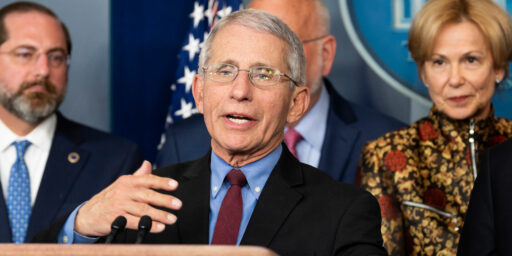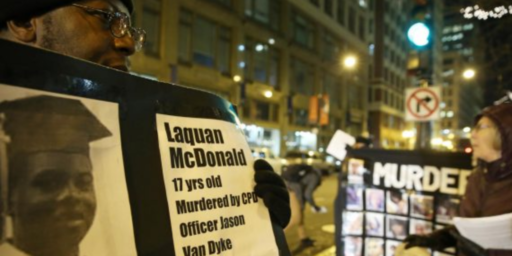Protesting the Protest Letter
 John Cochrane‘s July 12 fisking of a letter from his University of Chicago colleagues protesting the creation of a Milton Friedman Institute has finally made its way around the interwebs to yours truly via Steve Bainbridge. (Megan McArdle and Tyler Cowen had weighed in previously but they fell through the cracks of my RSS reading.)
John Cochrane‘s July 12 fisking of a letter from his University of Chicago colleagues protesting the creation of a Milton Friedman Institute has finally made its way around the interwebs to yours truly via Steve Bainbridge. (Megan McArdle and Tyler Cowen had weighed in previously but they fell through the cracks of my RSS reading.)
Cochrane’s critique is worth reading in its entirety. A fair synopsis, though, would be:
If it’s sad to see what 101 professionally distinguished minds at the University of Chicago think about free markets at all, it is to me sadder still how atrociously written this letter is. These people devote their lives to writing on social issues, and teaching freshmen (including mine) how to think and write clearly. Yet it’s awful.
The letter starts with two paragraphs of meaningless throat-clearing. (“This is a question of the meaning of the University’s investments, in all senses.” What in the world does that sentence actually mean?) I learned to delete throat-clearing in the first day of Writing 101. It’s all written in the passive, or with vague subjects. “Many” should not be the subject of any sentence. You should never write “has been put in place,” you should say who put something in place. You should take responsibility in your writing. Write “we,” not “many colleagues.” The final paragraphs wander around without saying much of anything.
The content of course is worse. There isn’t even an idea here, a concrete proposition about the human condition that one can disagree with, buttress or question with facts. It just slings a bunch of jargon, most of which has a real meaning opposite to the literal. “Global South,” “neoliberal global order,” “the service of globalized capital,” “substitution of monetization for democratization.” George Orwell would be proud.
Indeed.
Beyond the bad writing and bad economics contained in the original protest letter, I also can’t help wondering: Why would one take a job teaching economics at The University of Chicago if one were not only skeptical of but deeply ashamed of the theory of economics known widely as the Chicago School? Presumably, these aren’t academic gypsies who struggled for years to land a tenure track offer and simply went to whomever would hire them. Surely, these people could find a decent perch at an institution more in line with their own worldview? Such as, I don’t know, virtually any other school in the country?
UPDATE: As commenter Anderson rightly notes, the signatories to the letter in question taught in other departments of the university exclusively. That, of course, makes a lot more sense.
Photo credit: Chuck Nacke/Time Life Pictures/Getty Images






Well, basically, because food is food and it affords opportunities like the one posted on to trash the people who made the reputation from which’s capital you’re deriving your living.
I had thought most of the signatories were UC faculty outside the Econ Dep’t.
You know, English professors & such riffraff.
Yes, that would make more sense.
This is indicative of the state of affairs coast to coast in our universities. Intellectual dishonesty and cowardice. I fear for my son and his education.